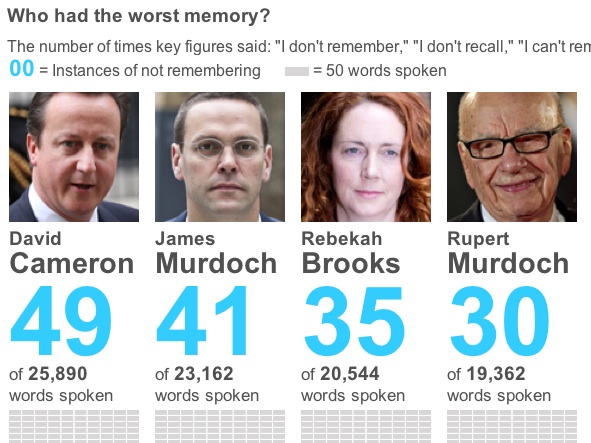Make no mistake about it: the criminal charges unveiled yesterday against former top News Corp. officials mark a major step forward for British law enforcement in its pursuit of Rupert Murdoch’s media giant.
Throughout the whole of hack-gate, the (journalism-led) probe into the phone and computer hacking and police bribery by News Corp.s U.K. unit, its ultimate outcome has always hung on something of a wildcard: the British criminal justice system.
Over here, stateside, we’re almost inured to the current, atrophied state of white-collar prosecution, which has left a gaping hole in the public sense of accountability following the financial crisis and continues to disappoint.
Neil Barofksy, the former inspector general for the TARP program makes it distressingly clear in this Gretchen Morgenson column that the public sense is correct: authorities here are not prepared to act:
“The suspicions that the system is rigged in favor of the largest banks and their elites, so they play by their own set of rules to the disfavor of the taxpayers who funded their bailout, are true,” Mr. Barofsky said in an interview last week. “It really happened. These suspicions are valid.”
Despite the remarkable public outrage that has attended the hack-gate scandal, and despite the plethora of official investigations, both civil and criiminal (summarized on this lengthy Wikipedia page), no one could be blamed for wondering how far this all would go.
The answer: Very far. The levying of criminal charges against Andy Coulson and Rebekah Brooks, both former top editors of the rogue, now-closed News of the World and top officials within NewsCorp. itself, along with six other prominent figures in the scandal, mark not just, as the NYT says, a “sharp turning point,” but a major escalation of what promises to be a long, potentially explosive investigation. As Nicholas Watt observes, the charges against Coulson mean huge problems for the man who hired him as Conservative party communications director, David Cameron.
While some have argued that the defendants are small fish (at least relatively), these charges lay the foundation for anything that might come later. Without them, the probe goes nowhere. With criminal penalties now a live possibility, these formerly high-ranking NewsCorp. figures have every incentive to cooperate with authorities.
This could go literally anywhere.
—The BBC has the graphic of the day, which summarizes and parses the millions of words of testimony given to the Leveson commission, appointed by the Prime Minister to probe the culture, practice, and ethics of the press in the U.K.
The best part is the accounting of who said “I don’t recall,” or some variation, the most often:

Also on the Beeb, a handy summary of both the key figures alleged to have perpetrated the crimes and a much longer list of victims.
—While we’re over here, Ryan Chittum among others has been worrying quite a bit about the Guardian, which, of course, was behind the hacking-gate story, way back in 2009, and even before, before cracking it wide open in 2011. While the Guardian’s journalism has been stellar, its financial performance in recent years has been anything but. Its top editor, Alan Rusbridger, who gets every benefit of the doubt around here, has mystified some (me) with his insistence on keeping the Guardian free online, i.e. no paywalls, like the successful one now buoying The New York Times.
I’m no paywall apostle, but sometimes Rusbridger’s advocacy for free content comes across as worryingly ideological, as in this well-done profile in The Economist’s cultural and arts magazine:
The Guardian is not against all charges for digital reading. It asks a token sum for its iPhone edition (£4.99 a year), and a more realistic one for the iPad (£9.99 a month). But it is fiercely resistant to charging for its website—a position it shares with the Mail, the Telegraph, the Washington Post and many others. Some editors stay out of these choppy waters, saying the decisions are made by their commercial colleagues. Rusbridger goes the other way—not only is he happy to defend the Guardian’s stance, he has built a theory around it. He calls it “open journalism”, and in March, in an online Q&A session with readers, he defined it: “Open journalism is journalism which is fully knitted into the web of information that exists in the world today. It links to it; sifts and filters it; collaborates with it and generally uses the ability of anyone to publish and share material to give a better account of the world.”
He has become quite evangelical about it.
That’s what worries me.
Dean Starkman Dean Starkman runs The Audit, CJR’s business section, and is the author of The Watchdog That Didn’t Bark: The Financial Crisis and the Disappearance of Investigative Journalism (Columbia University Press, January 2014). Follow Dean on Twitter: @deanstarkman.
